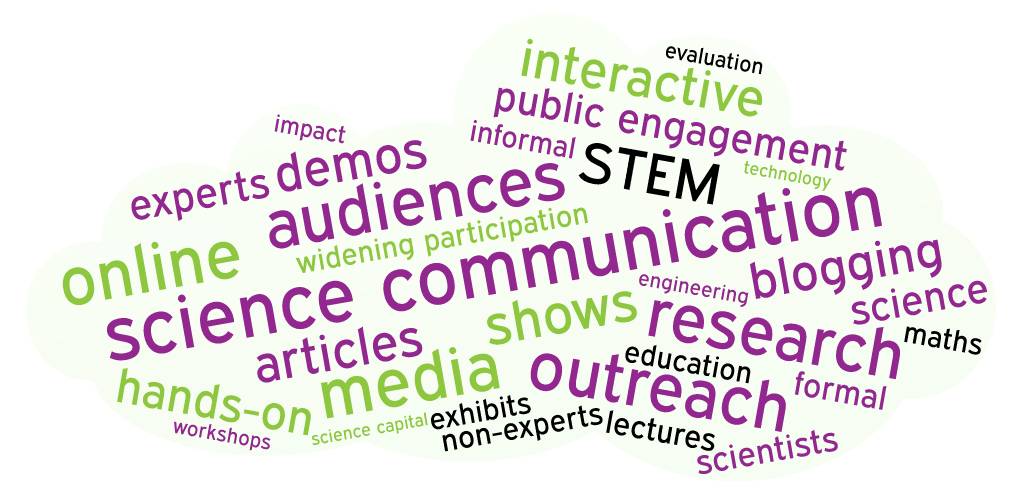- Home
- Jobs & Careers
- What is science communication?
What is science communication?
Science Communication is the practise of communicating science-related topics to non-experts. In the field of Science Communication, this usually extends to the communication of science, technology, engineering and maths (STEM) topics. However, many other terms are often used interchangeably for similar activities, including Public Engagement, Public Understanding and Outreach, although they all have slightly different emphases. The communication of science takes many forms, from written articles in newspapers, magazines and blogs to standing in front of a non-expert audience to give a lecture or leading an interactive science workshop for children. Public Engagement aims to engage the general public in two-way scientific conversations, usually about shared issues and problems, to hopefully benefit society as a whole. Outreach activities are usually seen as public lectures, activities and workshops to encourage the public understanding of science and scientific research and are also often used to encourage school children to take up STEM study in higher education, or to support more formal education. If you would like a more thorough insight into the subject, the National Co-ordinating Centre for Public Engagement (NCCPE) website provides further descriptions. Who are STEM Communicators?
STEM Communicators are people who communicate STEM subjects to non-experts as part of their job. Usually this is considered to be all people involved in informal science communication activities and hands-on education projects in the UK.
Careers and jobs available for STEM Communicators are wide-ranging and varied and new STEM communication positions are thought up everyday!
Below are some examples of what you could do as a STEM Communicator.
What does science communication mean to me?These short video clips were filmed by Sonal Katyal from India International Science Festival. She recorded them while attending the BIG Event in 2018 and asked a variety of science communicators what they do and what science communication means to them: David Porter, Royal Institution of Great Britain - watch here Bella Williams, Understanding Animal Research - watch here Ian Russell, Freelance Science Communicator - watch here Compilation of the above, with an extra bit - watch here
If you think you might be interested in following a STEM Communication career, check out our Career and training pages for some extra information.
|

